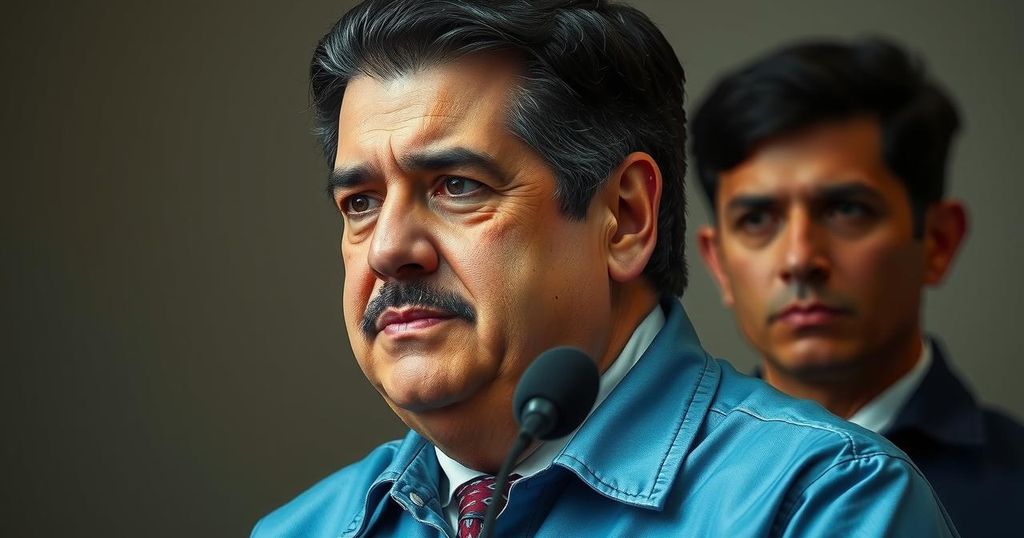The Intensified Repression of Nicolás Maduro’s Regime in Venezuela

Venezuela is experiencing heightened repression under Nicolás Maduro following a recent election loss, leading to fear among citizens and increased state control. The government has intensified its crackdown on dissent, targeting both high-profile opposition supporters and ordinary citizens through arrests, intimidation, and restrictions on basic needs. The situation reflects a broader pattern of authoritarian governance and the urgent need for international support against human rights violations.
Venezuela is currently experiencing a new wave of repression under President Nicolás Maduro, whose recent electoral defeat has led to increased fear and restrictive conditions for the populace. Previously, Venezuelans responded to the pervasive state of affairs—often referred to as “la situación”—with a sense of resignation. However, following the July 28 elections, where the opposition effectively rejected Maduro, citizens have transitioned to discussing “la represión,” signaling a shift towards heightened state control.
Historically, Maduro’s regime has been characterized by the oppression of dissenters, with thousands of arrests and accusations of torture. Nonetheless, before the elections, there was a fleeting sense of optimism as certain economic activities seemed to flourish under less intrusive governance. This illusion was shattered post-election when Maduro maintained control despite losing support, enabling him to retaliate against those who voted against him.
The regime has intensified its crackdown on dissent since the election, targeting not just prominent opposition figures but also ordinary citizens who protest through subtle means. Reports indicate that citizens live in fear, censoring their own actions and conversations, as they are scrutinized for even possessing anti-government content on their devices. Maduro’s government has also escalated its hostilities towards those seeking asylum, particularly the aides of opposition leader María Corina Machado, who have become trapped in a tense standoff within the Argentine embassy in Venezuela.
This group of asylum seekers is reportedly facing severe restrictions, including limited access to food and electricity, as they remain cut off from the outside world. Maduro’s government’s refusal to allow their safe passage underscores the regime’s use of revenge tactics against perceived adversaries. By shifting the focus to obscure individuals aligned with Machado rather than directly confronting her, Maduro aims to assert control and instill fear among his critics.
The ongoing situation in Venezuela encapsulates a profound state of repression characterized by fear, political manipulation, and a significant disconnect between government promises and the reality faced by the citizens. This narrative of repression is not only reflective of the broader human rights concerns in Venezuela but also highlights the need for international scrutiny and support for those attempting to challenge authoritarian rule.
The article discusses the state of repression in Venezuela under the leadership of Nicolás Maduro, particularly following a recent election in which the opposition performed strongly against him. It examines the shift in public sentiment from acceptance of economic hardship to a more acute awareness of the repressive tactics employed by the regime. This atmosphere of fear and control affects both political figures and ordinary citizens, showcasing the regime’s strategy of targeting opposition supporters while avoiding direct confrontations with prominent leaders.
In conclusion, the situation in Venezuela, marked by increased repression and widespread fear following the recent elections, reveals a troubling trajectory for the country. Maduro’s response to his loss of popularity highlights a regime intent on control through intimidation and punishment of dissent. Citizens now face an environment where expressing dissatisfaction carries significant risks, fostering a climate conducive to further oppression. The plight of political prisoners and asylum seekers encapsulates the broader struggle for human rights and freedom in Venezuela, necessitating ongoing international attention and advocacy.
Original Source: www.theatlantic.com








